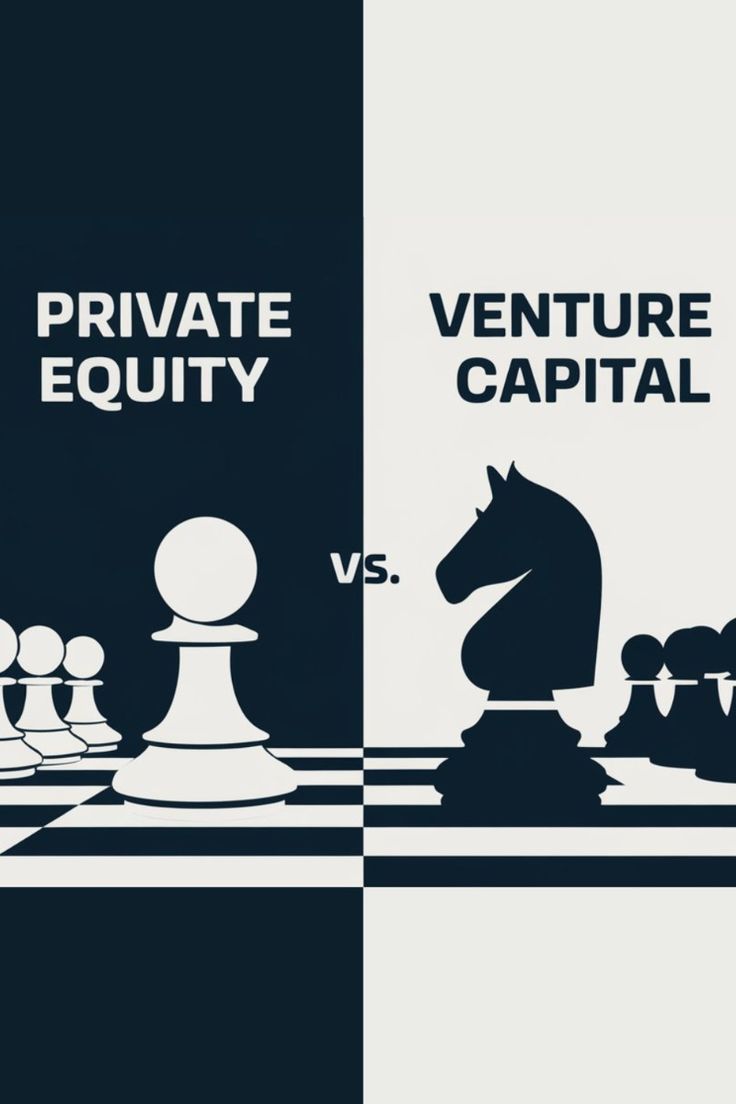Private Equity and Venture Capital: The Driving Forces Behind Business Growth
Private Equity and Venture Capital: In the world of finance, private equity (PE) and venture capital (VC) are two of the most influential investment strategies that fuel innovation, growth, and business development. These investment approaches are integral to the growth of companies, particularly startups and emerging businesses that seek capital to expand and thrive in competitive markets.
In this article, we’ll explore the differences between private equity and venture capital, the types of companies they fund, their roles in the business ecosystem, and their impact on the economy and society.
What is Private Equity (PE)?
Private equity refers to investment in companies that are not publicly traded on the stock exchange. These investments are usually made by private equity firms, institutional investors, or high-net-worth individuals. PE firms typically invest in more mature companies that are established but require funding for expansion, restructuring, or operational improvements.
PE firms generally look for companies that have stable cash flows and proven business models. The goal of private equity is to enhance the value of the target company, either by improving operations, scaling the business, or restructuring it, with the intention of eventually selling it for a substantial return.
What is Venture Capital (VC)?
Venture capital, on the other hand, focuses on investing in early-stage or startup companies that have high growth potential but are often unproven or risky. These companies are typically in the technology, healthcare, or innovation sectors, and venture capitalists (VCs) are willing to take on more risk in exchange for the potential of high rewards.
Venture capitalists provide funding to startups in exchange for equity, often taking an active role in the company’s development by offering strategic guidance, mentorship, and connections to other investors or partners. The goal of VC is to help these companies scale rapidly and achieve profitability so they can either go public through an IPO or be acquired by larger firms.
Key Differences Between Private Equity and Venture Capital
While both private equity and venture capital are aimed at fostering business growth, they differ in terms of investment stage, target companies, and investment approach. Here are some key distinctions:
- Investment Stage:
- Private Equity: Focuses on mature, established companies that may be looking for expansion, restructuring, or buyouts.
- Venture Capital: Invests in early-stage or startup companies with high growth potential but often higher risk.
- Target Companies:
- Private Equity: Typically targets companies with stable revenue streams and market presence.
- Venture Capital: Targets emerging companies, often in the tech, biotech, and other innovation-driven sectors.
- Risk and Return:
- Private Equity: PE investments generally carry lower risk due to the maturity of the companies involved, but they require a higher capital investment.
- Venture Capital: VC investments are riskier, as startups have a higher chance of failure, but they offer the potential for higher returns if the business succeeds.
- Investment Size:
- Private Equity: Involves larger investments, often millions or even billions of dollars.
- Venture Capital: Typically involves smaller investments, ranging from hundreds of thousands to tens of millions.
- Involvement in the Company:
- Private Equity: PE firms are often actively involved in the management and operations of the company to drive value creation.
- Venture Capital: VCs may also take an active role but typically provide strategic guidance, networking, and connections rather than day-to-day management.
Impact of Private Equity and Venture Capital
Both private equity and venture capital have a profound impact on the business world and society. By providing capital to businesses, they drive innovation, job creation, and economic growth.
- Innovation and Technology: Venture capital is particularly crucial in driving technological innovation and breakthroughs. Many of the world’s most successful technology companies, such as Facebook, Google, and Amazon, started with venture capital funding. These companies revolutionized entire industries and transformed how we interact with the world.
- Economic Growth and Job Creation: Private equity investments often help mature companies expand, create jobs, and increase revenue. By providing capital for growth or operational improvements, PE firms help companies stay competitive, scale, and create a more robust economic environment.
- Restructuring and Efficiency: Private equity firms often invest in struggling or underperforming companies with the goal of turning them around. By improving efficiency, restructuring operations, or streamlining management, private equity can help save jobs and preserve businesses that might otherwise fail.
- Support for Entrepreneurs: Both PE and VC provide crucial support for entrepreneurs and business owners who may not have access to traditional financing sources. By offering mentorship, capital, and business expertise, private equity and venture capitalists empower entrepreneurs to turn their ideas into scalable businesses.
- Global Reach: Through venture capital and private equity, businesses can expand internationally and reach new markets. This international investment accelerates the growth of companies and increases their competitive edge on the global stage.
FAQs on Private Equity and Venture Capital
- What are the main differences between private equity and venture capital?
- Private equity focuses on investing in mature companies with stable revenue, while venture capital targets early-stage startups with high growth potential. PE investments tend to be larger and involve more established companies, while VC deals are typically smaller and higher risk.
- How do venture capitalists add value to the companies they invest in?
- In addition to providing capital, venture capitalists often offer strategic guidance, mentorship, and access to a network of contacts that can help a company grow. They play an active role in supporting the company’s long-term development.
- Is private equity only for large companies?
- While private equity firms typically target larger, established companies, they can also invest in smaller businesses, particularly if they have significant growth potential or need restructuring.
- How do private equity and venture capital affect society?
- Both PE and VC drive economic growth, create jobs, and promote innovation. Venture capital, in particular, is a key source of funding for new technologies and startups, while private equity helps companies scale and improve operational efficiency.
Conclusion: The Future of Private Equity and Venture Capital
As the world of finance continues to evolve, private equity and venture capital will remain at the forefront of business development and growth. By investing in companies at various stages of their lifecycle, these two investment strategies help drive innovation, create jobs, and foster economic prosperity.
Whether you’re an entrepreneur looking for funding or an investor interested in exploring these markets, understanding the nuances between private equity and venture capital is essential to navigating this dynamic and impactful industry. Both PE and VC will continue to play an important role in shaping the future of business and technology, driving the next generation of innovation.










